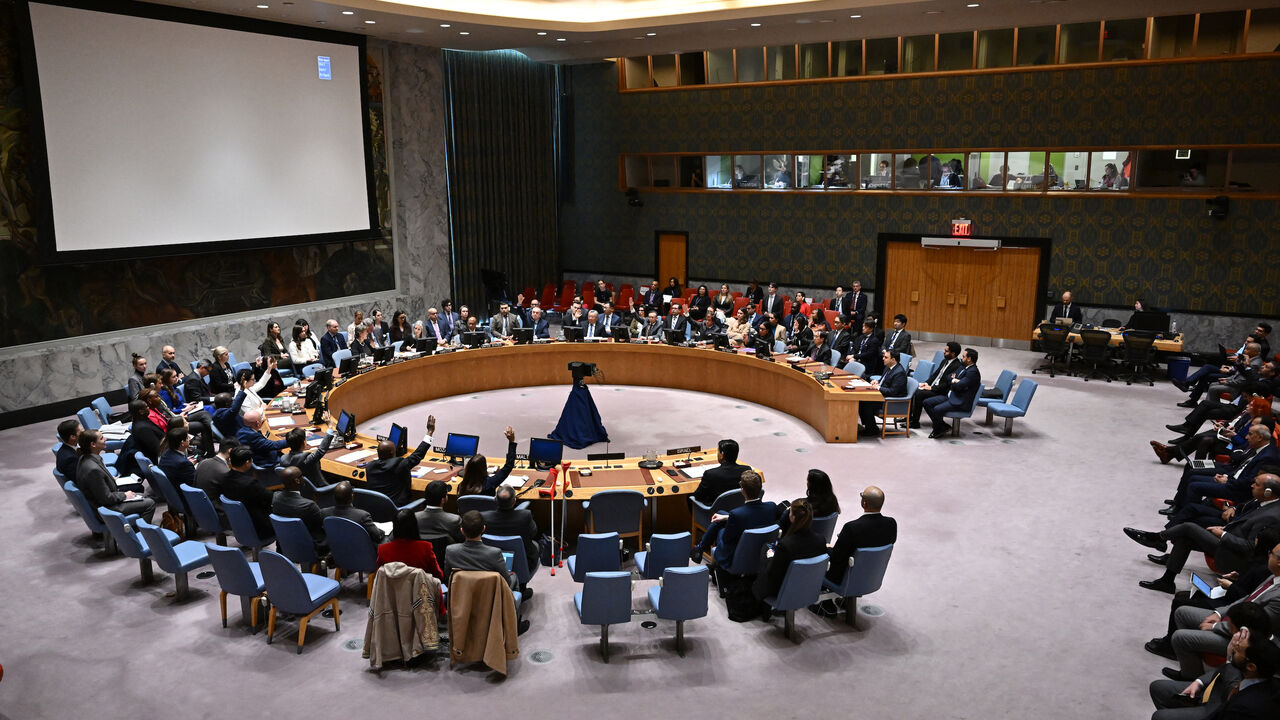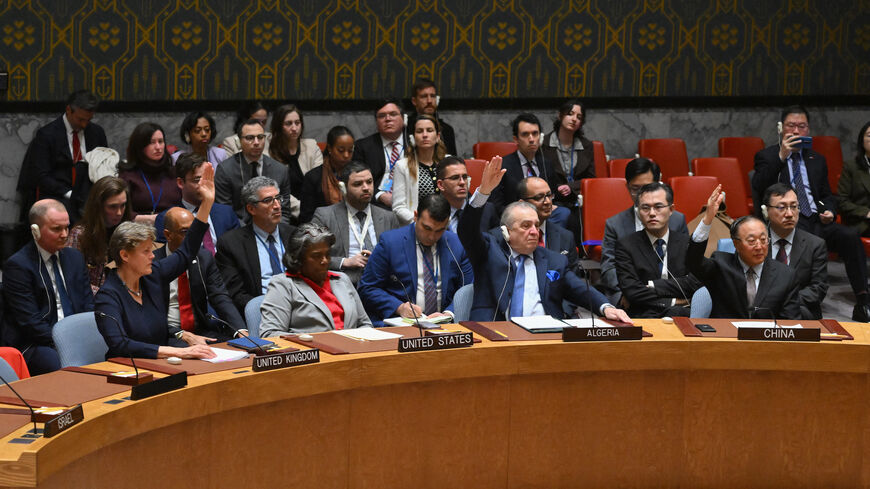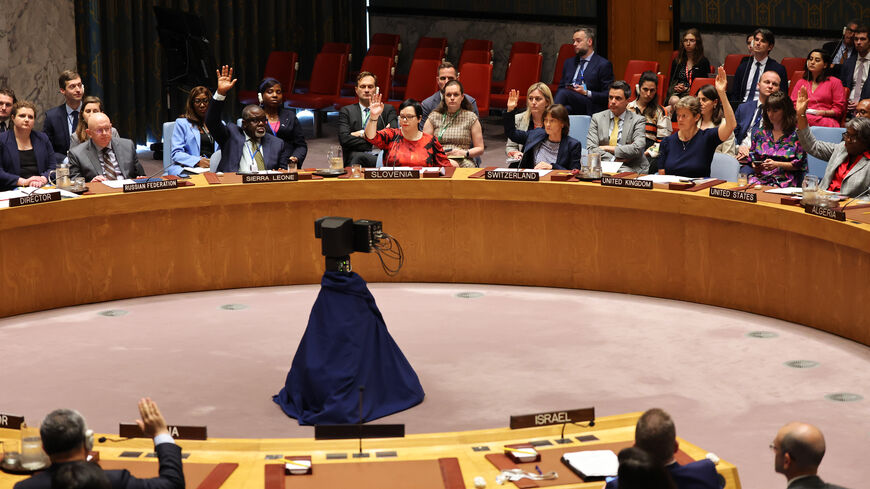US vetoes UN resolution demanding Gaza cease-fire
The United States was the single dissenting vote on a UN Security Council resolution that called for an immediate and unconditional cease-fire and the release of the Hamas-held hostages.

WASHINGTON — The United States cast the sole veto at the UN Security Council against a resolution that called for an unconditional and permanent cease-fire in the Gaza Strip and the release of all hostages.
The resolution, which had the support of the council’s 14 other members, was criticized by Israel’s top ally for not explicitly linking a cease-fire with the freeing of the remaining captives taken by Hamas.
“A durable end to the war must come with the release of the hostages. These two urgent goals are inextricably linked,” Deputy US Ambassador Robert Wood said after the vote.
“Simply put, this resolution would have sent a dangerous message to Hamas: There's no need to come back to the negotiating table,” Wood said.
The failed resolution, which was put forward by the council’s 10 elected non permanent members, demanded "an immediate, unconditional and permanent cease-fire" in the war between Israel and Hamas and "the immediate and unconditional release of all hostages."
It further rejected “any effort to starve Palestinians” and called for the “unhindered entry of humanitarian assistance at scale.” The resolution did not condemn Hamas, another sticking point for the United States.
Russian Ambassador Vasily Nebenzya said the United States had attempted to “muzzle the voice of the council” with its lone dissenting vote.
“We could have demanded today an immediate, unconditional and sustainable cease-fire in Gaza, as well as an immediate and unconditional release of all hostages. It is unconscionable that the US would cynically stand in the way of demanding such actions,” Nebenzya told the council.
The vote on Wednesday marks the fourth time the United States, one of the council’s five permanent members, has wielded its veto on a Gaza cease-fire resolution. Earlier in the war, it took issue with language in various resolutions that did not acknowledge Israel’s right to defend itself or condemn Hamas’ Oct. 7 assault.
Under international pressure, the United States abstained from a vote in March, which allowed the passage of a resolution for a cease-fire during the Muslim holy month of Ramadan. The resolution was similar to the one the United States blocked on Wednesday in that it did not firmly tie a cease-fire to the release of hostages in Hamas captivity.
In June, the council adopted a US-drafted resolution urging Israel and Hamas to fully implement the three-phase cease-fire proposal that President Joe Biden unveiled in late May. But the UN measure had no tangible impact on the ground in Gaza. Efforts to secure a comprehensive cease-fire and hostage release stalled this summer after both sides made demands that fell outside the original text. The Palestinian militant group has rejected recent proposals for a more limited truce during which some of the captives would be freed in return for a pause in the fighting.
The death toll continues to climb from Israel’s military campaign in Gaza, now in its second year. The local Health Ministry, which does not distinguish between civilians and combatants, says more than 43,000 Palestinians have been killed. A majority of the dead are believed to be women and children.
The United Nations said Tuesday that Palestinians in northern Gaza have been “facing diminishing conditions for survival,” with barely any aid reaching them in the past 40 days. One UN official described Israel’s current offensive in the north, where its military is battling a Hamas resurgence, as “an intensified, extreme and accelerated version of the horrors of the past year.”
Some diplomats had hoped Biden would use his lame duck status to take a tougher line on Israel at the UN Security Council, as President Barack Obama did when he allowed an anti-Israeli settlement resolution to pass while finishing out his second term in December 2016.
"Today’s veto settles an open question: The Biden administration will not stop supporting Israel during the lame duck period," Maya Ungar, UN analyst at the International Crisis Group, told Al-Monitor. "This will only exacerbate the Security Council’s disarray at a time when many no longer see it as a functioning body."
Underscoring that disarray, Russia used its veto Monday to block a Security Council resolution calling for an immediate cease-fire between Sudan's army and rival paramilitary forces.






